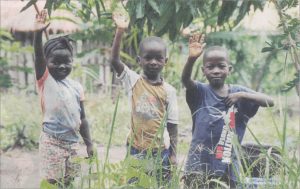
Ebola virus in 2014 claimed about 11,000 lives in countries across Africa, including Nigeria. It all started on July 20 when an Asky Airline flight originating from Liberia landed at the Murtala Muhammed International Airport, Lagos. One of the passengers, a Liberian diplomat, Mr. Patrick Sawyer, collapsed and was rushed to the First Consultant Medical Centre, Obalende, Lagos. It turned out Sawyer had contracted the dreaded Ebola disease. The ripple effect sent the Nigerian hospitality industry crashing. Because of the failure of Sawyer to disclose his health status, some health workers were infected. There was genuine fear that the country would soon see an outbreak of Ebola. This sent the country into panic. Many foreigners took the next available flight out of Nigeria. Many airlines cancelled flights to Nigeria and many countries treated visitors from Nigeria with caution. The hospitality players toned down their budgets and devise means of survival. They had empty rooms with fixed costs. It was an industry on the verge of collapse that heaved a sigh of relief when on September 21 Nigeria was declared an Ebola-free country by the World Health Organisation (WHO). For at least four months after this declaration, the hospitality industry did not recover from the effect[i].
Nigeria’s hospitality industry is the fastest growing in Africa. Annually, bed spaces above 1,000 are being added by new international hospitality brands. Although the hospitality industry is still growing with new hotels springing up, 2014 turned out to be the most difficult year for the hospitality industry in modern times. The biggest single event that impacted tourism in Nigeria was the Ebola virus disease. Ordinarily, most hotels in Nigeria’s two major cities, Lagos and Abuja have an average room occupancy of 70 percent, but 2014 was different.
For the role they played in the war against the deadly Ebola Virus, public officers like Prof. Onyebuchi Chukwu, Health Minister, came into the consciousness of the people. Onyebuchi resigned from his ministerial post to take a shot at Ebonyi Government House on the platform of the PDP but later boycotted the governorship primary[ii]. When Sawyer was brought into First Consultants, the proper diagnosis could not be made immediately and the cool and collected and respected Senior Consultant, Adadevoh was off duty. But, as soon as duty called, suspecting that Sawyer who had been afflicted with the disease was about to discharge himself and disappear into the Lagos Streets, Adadevoh was informed and she swiftly, moved in. She forcibly restricted Sawyer to his bed while awaiting the results of the tests ordered and response of the health authorities. That was the saving grace for the Nigerian society. That the monstrous killer disease was finally restrained is due largely to the noble heart of the 58-year- old Woman, her courage, dedication to duty and playing strictly by the rule. Eventually, she paid the supreme price. She died on July 25[iii].
The case of Ebola in Liberia was safely buried on May 9, 2015, – the period of time set by WHO to declare an outbreak over[iv]. There has been a renewed scare in Congo after the World Health Organisation confirmed the re-emergence of the virus, following laboratory tests. This was quite surprising as Congo was not one of the countries greatly affected by the virus some years before[v].
[i] Nation, December 27, 2014
[ii] Nation, December 10, 2014
[iii] Nation, December 21, 2014
[iv] Punch, May 9, 2015
[v] Punch, May 21, 2017
